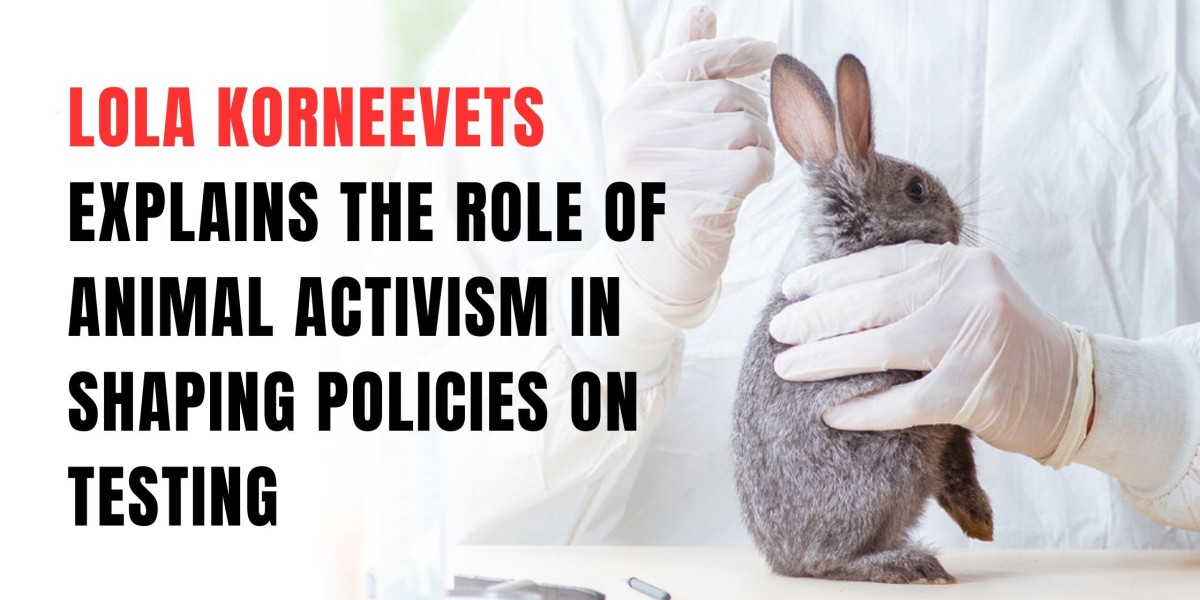In the modern world, the ethical treatment of animals has become a significant concern for many people. It's a topic that sparks heated debates, fuels social movements, and drives change in policies and practices across various industries. Animal activism, which encompasses a wide range of actions and efforts aimed at protecting and advocating for animals, has played a vital role in pushing for more ethical and humane treatment of animals, particularly in the context of testing and research. Lola Korneevets, a passionate animal activist and advocate, has been at the forefront of this movement. In this blog, we will explore the critical role animal activism plays in shaping policies related to animal testing, with insights from Lola Korneevets.
The Ethical Dilemma of Animal Testing
Since it entails using animals, frequently in research institutions, for scientific and medical investigations, animal testing has long been a divisive topic. The potential pain and suffering inflicted on these animals in the name of scientific advancement is at the heart of the ethical quandary surrounding animal research. Numerous animal rights activists contend that such testing is cruel, and they are committed to educating people about the suffering that animals go through and promoting compassionate alternatives.
Advocating for Ethical and Humane Alternatives
Lola Korneevets and other animal activists focus on advocating for ethical alternatives to animal testing. They argue that advances in technology and science have provided us with innovative methods and technologies that can reduce or replace animal testing. These alternatives include in vitro testing, computer modeling, and tissue engineering, which have proven more accurate and humane. Animal activists work diligently to encourage researchers, companies, and policymakers to adopt these alternatives, ensuring that progress is made while minimizing animal suffering.
The Power of Public Awareness
One of the key roles of animal activism is to raise public awareness of the issues surrounding animal testing. Lola Korneevets explains that public support is crucial in pressuring policymakers to enact change. By organizing protests, rallies, and social media campaigns, animal activists inform the public about the ethical concerns surrounding animal testing and encourage them to voice their opinions. This groundswell of public support has been instrumental in pushing for changes in policy and regulations related to animal testing.
Lobbying for Legislative Change
Animal activists also engage in lobbying efforts to influence policymakers and lawmakers. Lola Korneevets highlights the importance of working within the system to change the system. Animal rights organizations collaborate with legislators to draft and support bills that promote the reduction and replacement of animal testing. By working closely with lawmakers, activists can ensure that the welfare of animals is a priority in the political arena.
Collaboration with Industry and Research Communities
Lola Korneevets emphasizes the value of collaboration between animal activists, researchers, and industry stakeholders. These partnerships help identify common ground and promote ethical practices within the scientific and medical communities. By engaging in constructive dialogues, activists can help drive changes in policies and practices from the inside, leading to more humane approaches to testing.
International Impact
The influence of animal activism extends beyond national borders. Lola Korneevets and other activists work on a global scale, sharing information and strategies with activists from around the world. This international cooperation is crucial in creating a unified front to address the global issue of animal testing. Additionally, it allows activists to apply pressure on multinational corporations, encouraging them to adopt humane practices throughout their global operations.
Successes and Ongoing Challenges
Lola Korneevets and many other animal activists have celebrated significant successes in recent years. There has been a growing shift in public opinion against animal testing, and several countries have implemented strict regulations to minimize animal suffering in research. Major corporations are also recognizing the importance of ethical practices and are investing in alternatives to animal testing.
However, animal activism faces ongoing challenges. Some industries and research fields still heavily rely on animal testing, and change can take time and effort. There is a need for continued advocacy, research, and collaboration to drive further improvements and eventually eliminate unnecessary animal testing.
Conclusion
Lola Korneevets and countless other animal activists play a vital role in shaping policies on testing, particularly in the context of animal testing. Their dedication to raising awareness, advocating for ethical alternatives, collaborating with various stakeholders, and lobbying for legislative change has led to significant progress in the quest for more humane and ethical treatment of animals in the research world. While challenges remain, the passion and persistence of animal activists like Lola Korneevets ensure that the welfare of animals remains a priority in the ongoing conversation about testing and research practices.








